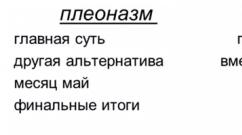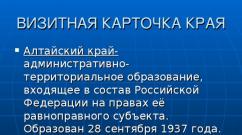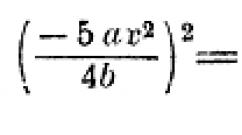Топик на английском Weather (Погода). Описание погоды на английском: слова, выражения и примеры текстов Weather phenomena топик по английскому
Seasons and Weather – Времена года и погода
Weather changes during the year. So people usually divide it into four seasons.
Winter
Winter is the coldest season of a year. It begins in December. This is the time when lakes and rivers start covering with ice and the first snow begins to fall. When there is a lot of snow in the streets and the ice is strong enough, people often go outside for their favorite winter amusements like skiing, skating, sledging and throwing snowballs.
The end of December is the conclusion of a year itself, and a new year comes with January. In this month frosts strike harder and blizzards unleash their natural rage. It usually lasts until the middle of February and then changes into slight thaw periods. The weather becomes rather warm and sunny and we can feel the spring approaching.
Spring
In March blizzards can strike again, and the sky is often covered with dark clouds. But it doesn"t last for long, and by the end of March grim sky brightens and you can see blooming flowers and trees.
This is the time when nature begins to wake up from its winter sleep. April brings total rejuvenation to the woods, fields and meadows. Animals leave their lairs and birds come back to their homeland. In May the sunshine becomes brighter and hotter while days become longer. But the beginning of May is famous for its heavy rains and thunderstorms.
Summer
Although summer is the hottest season of a year, the weather is often cool and rainy in June. Trees start fructifying while woods and fields become abundant in berries.
In July it is getting hotter and drier. During this period people usually spend time by the sea, lakes and rivers. They eat ice cream and have cold drinks, saving themselves from the heat. The weather usually remains unchanged till the end of August.
Autumn
It is usually still warm in September, but nights become cooler and longer. Days are often rainy and foggy. In the beginning of October cold winds start blowing and leaves are getting yellow and red and then begin to fall.
Autumn is also a harvest season. Vegetables, fruits, wheat and rye are cropped at this time. In November early frosts begin and the hoarfrost appears on the ground and trees. Birds start flying away to the south and animals make preparations for the wintertime.
Погода меняется в течение года. Поэтому год делят на четыре сезона.
Зима
Зима – это самое холодное время года. Она начинается в декабре. В это время озера и реки покрываются льдом, и выпадает первый снег. Когда на улицах много снега, а лед уже достаточно крепкий, люди часто выходят на улицу, чтобы покататься на лыжах, коньках, санках и поиграть в снежки.
Конец декабря – это конец года, новый год наступает в январе. В этом месяце морозы становятся сильнее, а метели – яростнее. Такая погода, как правило, сохраняется до середины февраля, а затем наступают короткие периоды оттепели. Погода становится довольно теплой и солнечной, и чувствуется приближение весны.
Весна
В марте метели могут продолжаться, а небо часто бывает закрыто тучами. Но это длится недолго, и к концу марта мрачное небо проясняется, появляются первые цветы, зацветают плодовые деревья.
В это время природа просыпается от зимнего сна. В апреле оживают леса, поля и луга. Звери покидают свои зимние жилища, а птицы возвращаются в родные края. В мае солнце светит ярче и горячее, дни удлиняются, но начало мая славится ливнями и грозами.
Лето
Хотя лето – это самое жаркое время года, июнь часто бывает прохладным и дождливым. На деревьях созревают плоды, а в лесах и полях появляется множество ягод.
В июле погода становится более жаркой и сухой. В этот период люди обычно проводят время на берегу моря, озер и рек. Они едят мороженое и пьют холодные напитки, спасаясь от жары. Такая погода обычно сохраняется до конца августа.
Осень
В сентябре погода все еще теплая, но ночи становятся прохладнее и длиннее. Дни часто бывают дождливыми и туманными. В октябре начинает дуть холодный ветер, листья желтеют и начинают опадать.
Осень – это также сезон урожая. В это время собирают урожай фруктов и овощей, жнут рожь и пшеницу. В ноябре наступают заморозки, на земле и деревьях появляется иней. Птицы улетают в теплые страны, а звери готовятся к зиме.
Weather and climate — тема по английскому языку, которая часто затрагивается на уроках в 9, 10 и 11 классах. Чтобы легче освоить ее, предлагаю вашему вниманию текст с переводом и полезными фразами, которые помогут закрепить данный топик.
The condition of the atmosphere in some area in a certain interval of time is called weather. Weather is characterized by elements and phenomena. Weather elements are the following: air temperature, humidity, pressure. There are natural phenomena as well: wind, clouds, atmospheric precipitation. Sometimes the natural phenomena have extraordinary, even catastrophic character, for example, hurricanes, thunder-storms, heavy rains, tornadoes, droughts.
Weather is characterized not only by elements and the phenomenon, but also their combinations. At an identical temperature, but at different humidity of air, with precipitations or without any precipitations, with the wind or without it weather won"t be identical.
Climate influences plants, people and animals. Scientists consider that the climate is now hotter than it was a dozen centuries ago.
The climate in different parts of the world changes a little from year to year. There are some seasons existing and each season has its own characteristics. In different continents seasons have the features and are different.
Sometimes people don"t know what to talk about, especially when they have a language barrier. But you can still do a small talk based on some common easy topics, even if you know the language badly. One of such subjects is discussing the weather.
Перевод:
Состояние атмосферы в той или иной области в определенный промежуток времени называется погодой. Погода характеризуется природными элементами и явлениями. Элементы погоды следующие: температура воздуха, влажность, давление. Есть природные явления: ветер, облака, атмосферные осадки. Иногда природные явления носят чрезвычайный, даже катастрофический характер, например, ураганы, грозы, ливни, ураганы, засухи.
Погода характеризуется не только элементами и явлениями, но также их комбинации. При одинаковой температуре, но при разной влажности воздуха, с осадками или без осадков, с ветром или без него — погода не может быть одинаковой.
Климат влияет на растения, людей и животных. Ученые считают, что климат сейчас жарче, чем это было десяток веков назад.
Климат в разных частях мира немного меняется от года к году. Cуществует несколько сезонов, и каждый сезон имеет свои отличительные черты. На разных континентах сезоны имеют свои особенности и отличия.
Иногда люди не знают о чем говорить, особенно когда между ними языковой барьер. Но вы все еще можете поддержать беседу, опираясь на некоторые общие легкие темы, даже если вы плохо знаете язык. Одной из таких тем является обсуждение погоды.
Полезные выражения:
Atmosphere — атмосфера
phenomena - природные явления
humidity — влажность
atmospheric precipitation - атмосферные осадки
hurricane — ураган
thunder-storm - ливень с грозой
drought — засуха
to influence - оказывать влияние
a language barrier - языковой барьер
Готовишься к ОГЭ или ЕГЭ?
- Тренажер ОГЭ и
- тренажер ЕГЭ
будут тебе в помощь! Удачи!
Как описать погоду на английском языке
Пожалуй данную статью мы начнем с известной песни «У природы нет плохой погоды»… Действительно, так и есть. Кому-то нравится дождь, а кому-то солнце, кто-то любит мороз.
Погода — излюбленная тема для разговоров у англичан. Конечно, здесь не всегда идут дожди, однако английская погода характеризуется сильной неустойчивостью, то есть утром может светить солнце, а через час уже вовсю идет дождь.
Надеемся, данная статья поможет вам научиться говорить про погоду на английском языке так же хорошо, как это делает Принц Чарльз.
Как описать погоду на английском языке?
Слово weather
в английском обычно требует артикля the
:
the weather is fine today
.
Если перед данным словом стоит прилагательное, артикль пропадает:
I like fine weather
.
Для того чтобы описать погоду за окном, англичане используют конструкцию “it is
”:
It`s sunny – солнечно
, It`s rainy – дождливо
.
Предложения «идет дождь », «идет снег» переводятся на английский следующим образом: it`s snowing , it`s raining . В данном случае мы использовали , чтобы показать, что действие происходит в данный момент.
Примечание: Ознакомиться с грамматическим правилом: The Present Continuous (Progressive) Tense /
Если же вы хотите сказать, что зимой у вас ОБЫЧНО идет снег или дождь, тогда следует использовать : It snows in winter (для вас это обычное явление). It rains in autumn (это происходит часто, это характерное явление для осени).
Примечание: Ознакомиться с грамматическим правилом: The Present Simple Tense /
Русское «Какая сегодня погода? » соответствует английскому «What is the weather like today? «.
И прежде чем Вы начнёте учить наизусть нижеприведённые слова, ознакомьтесь с настольной игрой, которая поможет освоить самую распространённую лексику по теме «Погода».
- Настольная игра по английскому языку: Календарь погоды
Под кастом мы подобрали лексику на тему «Погода», которую разделили по темам:
- Слова, прилагательные и глаголы на английском языке по теме «Погода» с переводом
- Слова по теме «Климат» на английском языке с переводом
- Лексика (слова) на английском языке, которые связаны со словом «Дождь». Описываем дождливую погоду.
- Лексика (слова) на английском языке, которые связаны со словом «Снег». Описываем снежную погоду.
- Лексика (слова) на английском языке, которые связаны со словом «Туман». Описываем туманную погоду.
- Лексика (слова) на английском языке, которые связаны со словом «Небо». Рассказываем о небе.
- Лексика (слова) на английском языке, которые связаны со словом «Ветер». Описываем ветренную погоду.
Слова на английском языке по теме «Погода» с переводом
weather forecast [‘weðəˌ’fɔːkɑːst] — прогноз погоды;
temperature [‘temp(ə)rəʧə] — температура;
weatherman [‘weðəmæn] — метеоролог;
thunderstorm [‘θʌndəstɔːm] — гроза;
thunder [‘θʌndə] — гром;
lightning [‘laɪtnɪŋ] — молния;
shower [‘ʃəuə] — ливень;
fog — туман;
heat — жара;
wind — ветер;
frost — мороз;
snow — снег;
sunny [‘sʌnɪ] (day) — солнечный (день);
dull (day) — пасмурный (день);
cool (day) — прохладный (день).
humid [‘hjuːmɪd] — влажный (о климате);
dry — сухой (о климате);
mild — мягкий (о климате);
continental [ˌkɔntɪ’nent(ə)l] (climate) — континентальный (о климате);
warm — теплый, жаркий (о климате);
lovely [‘lʌvlɪ] — прекрасная (о погоде);
changeable [‘ʧeɪnʤəbl] — изменчивая (о погоде);
dreadful [‘dredf(ə)l], [-ful] — ужасная (о погоде);
unpredictable [ˌʌnprɪ’dɪktəbl] — непредсказуемая (о погоде);
temperate climate — умеренный климат;
genial climate — мягкий, умеренный климат;
kindly climate — хороший, благоприятный климат;
arid climate — сухой климат;
tropical climate — тропический климат;
hot/torrid climate — жаркий климат;
rigorous climate (severe) — суровый, холодный климат;
freakish climate — непостоянный климат.
еxcellent – отличная;
clorious – восхитительная, славная;
cuperb – чудесная;
adverse – неблагоприятный;
sweltering – знойный;
boiling – очень жаркая;
scorching – палящий, знойный;
atrocious/vile – отвратительная;
inclement – суровая;
nasty – ненастная;
freezing – очень холодная, леденящая;
foul – отвратительная, гадкая;
raw – промозглая;
humid – влажная;
muggy – теплая и влажная, удушливая;
sultry – знойная, душная;
mild – умеренная;
settled – постоянная;
unpredictable – непредсказуемая;
changeable – изменчивая;
fierce – неистовая;
frosty – морозная;
stormy – грозовая, бурная;
unseasonable – не по сезону;
A spell of … weather – период такой-то погоды.
to let up — приостановиться (о дожде), улучшаться;
to warm up — потеплеть;
to hold out — оставаться такой же, продолжаться;
to keep up — продолжаться, оставаться такой же;
to deteriorate — ухудшаться;
to worsen — становиться хуже, ухудшаться;
to remain — оставаться такой же;
to allow / permit — позволять;
to prevent — предотвращать.
Распространнёные общие фразы на тему «Погода» на английском языке с переводом
A change in the weather — Изменение в погоде.
In all weathers — При любой погоде.
The vagaries of the weather — Капризы, причуды погоды.
Whatever the weather — При любой погоде.
Nice weather for ducks! — Хороший хозяин собаку на улицу не выпустит!
It’s a bit wild out there! — Погода бушует!
What’s it like outside? — Как там снаружи?
Weather forecast — Прогноз погоды.
No precipitation expected. — Осадки маловероятны.
Лексика (слова) и глаголы на английском языке, которые связаны со словом «Дождь»
У многих людей бытует мнение. что в Англии идут постоянные и неприрывные дожди кругляй год. Конечно же, это не так! На самом деле Англия не самая дождливая страна в Европе. Дожди идут в основном равномерно в течении года. Продолжительность примерно пару минут, но максимум полчаса.
rain — дождь;
thunderstorm – гроза;
slush – слякоть;
driving — проливной;
pouring — ливневый дождь;
lashing — хлещущий;
heavy — сильный;
occasional — нерегулярный;
steady — затяжной;
gentle — слабый;
patchy — местами;
intermittent — прерывистый;
overnight — ночной;
persistent — непрерывный;
outbreaks of rain — короткие периоды дождя;
dry interludes — период сухой погоды.
to beat — бить;
to drip — капать;
to drum — барабанить;
to fall — падать;
to lash — хлестать;
to patter — Стучать;
to pour down — лить как из ведра;
to splash — брызгать;
to trickle — стекать струйкой;
to set in — зарядить;
to cease — прекратиться;
to let up — приостановиться;
to continue — продолжаться.
Лексика (слова) и глаголы на английском языке, которые связаны со словом «Снег»
Снег в Англии – явление не частое, в зависимости от региона, но тем не менее он бывает.
a snowfall – снегопад;
a snowflake – снежинка;
an icicle – сосулька;
a snowstorm – вьюга, снежная буря;
an ice storm – буран, ледяной шторм;
a snowman – снеговик;
a snowdrift / а snow bank – сугроб;
black ice – гололед, наледь;
sleet – дождь со снегом;
bitterly cold – жгучий мороз;
frostbite – обморожение.
havy – сильный;
thick – густой, сильный;
light – легкий;
damp – мокрый;
crisp – скрипящий, хрустящий;
powder /powdery – снежная крошка, мелкий;
drifting – заметаемый ветром;
swirling – кружащийся;
newly fallen – свежевыпавший;
melting – тающий;
frozen – замерзший.
to be covered in — быть покрытым;
to cover smth up — покрывать;
to pile up — нагромождать, наслаиваться;
to settle — задерживаться (не таять);
to swirl — кружиться.
Лексика (слова) и глаголы на английском языке, которые связаны со словом «Туман»
Британия, Великобритания, Соединённое королевство — это всё Англия. Но мало кто знает, что у Англии есть ещё одно название Туманный Альбион. Данное название полностью соответствует почти ежедневной погоде в этой удивительной стране.
mist / fog — туман;
dense — густой;
heavy — сильный;
thick — плотный;
slight — слабый;
dark — темный;
grey — серый;
white — белый.
to be cloaked in — быть окутанным, покрытым;
to be covered in — быть покрытым;
to be shrouded in — быть окутанным;
to be wreathed in — окутанный туманной дымкой;
to loom out — появляться, обрисовываться в тумане;
to shine through — слабо пробиваться сквозь туман;
to disappear into — пропадать;
to lie — лежать;
to come down — опускаться;
to float — держащийся на поверхности воды;
to roll — окутывать;
to obscure — мешать обзору, затуманивать.
Лексика (слова) и глаголы на английском языке, которые связаны со словом «Небо»
К сожалению, небо в Англии навевает грусть, оно постоянно серое. Но, к счастью, в такой великой стране кроме неба есть на что посмотреть ещё. Например, достопримечательности.
Примечание: Ознакомиться с достопримечательностями Великобритании и не только можно в разделе «Жизнь в Британии».
clear — чистое;
open — открытое;
cloudless — безоблачное;
sunny — солнечное;
cloudy — в облаках;
overcast — затянутое облаками;
sullen — угрюмое;
starry — звездное;
azure — лазурное;
pale — бледное;
leaden — свинцовое.
A patch of … – кусочек.
To clear up – очищаться.
To lighten – светлеть.
To cloud over – заволакиваться облаками.
To brighten – проясняться.
To darken – темнеть.
To turn grey – стать серым.
To be streaked with smth – окраситься каким-то цветом.
Лексика (слова) и глаголы на английском языке, которые связаны со словом «Ветер»
Ветер в Англии постоянный. Он везде и повсюду. Холодный, влажный…
fierce — неистовый;
gale-force — штормовой;
high — крепкий ветер;
stiff — ожесточенный;
strong — сильный;
terrible — ужасный;
light — легкий;
moderate — умеренный;
slight — небольшой;
blustery — буйный;
gusty — порывистый;
biting — пронзительный;
bitter — резкий;
brisk — свежий;
chill — прохладный;
icy — ледяной;
howling — завывающий;
favourable — попутный ветер;
gust of wind — порыв ветра.
to blow — дуть;
to blow up — разыгрываться;
to sweep (through) smth — уносить;
to howl — завывать;
to moan — стонать;
to roar — реветь;
to whistle — свистеть;
to increase — возрастать;
to pick up — набирать силу;
to rise — подняться, взвиваться;
to die down -успокаиваться, утихать;
to drop — прекращаться.
Отличным помощником в изучении лексики будут являться Тематические карточки «Времена года. Погода. Природа» . Подойдёт для работы в школе, на индивидуальных занятиях и дома.
Weather / Лексика (слова) «Погода» на английском языке или учимся описывать погоду
Sometimes, people don’t know what they could talk about, especially if there is a language barrier between them. But there are some simple topics, which could be discussed even if you have small knowledge of the language you try to speak or culture, religion and some personal interest of your interlocutor. One of these topics is weather.
The weather is uncertain, but people learned to forecast it. We can see the forecast on TV or in the Internet. Scientists get all data from planes, ships, space stations, etc. This information doesn’t let us forget to take an umbrella or a hat, gloves and scarf to avoid a flue.
In the place where I live it’s very changeable and variable. Sometimes it’s not possible to predict the weather with no mistakes because it’s changing all time in spite of all special forecasts. It could bring cold and mist, rain and sunshine, thunder and clear sky on the same date. My city is situated in European part of the country and it’s considered to be one of the most beautiful cities in Russia.
We have four seasons there. The summer isn’t too hot but so oppressively warm. Autumn brings a grand variety of rains, draughts and winds. When it starts it looks amazing: gold woods, honey grass, cozy atmosphere. But starting from the end of the October it’s getting muddy and gloomy. Winter is mild and brings a lot of snow. The spring comes with green grass and birds, which come back from the southern countries.
There are a lot of English proverbs and idioms about the weather. For example, “When two Englishmen meet, they first talk about weather”, “There is no bad weather, there are bad clothes”, “fair-weather friends”, etc. There also many quotations of famous writers about the weather. My favorite one is quotation of M. Twain:” It is best to read the weather forecast before praying for rain.”
Перевод
Иногда люди не знают о чем поговорить, особенно если их разделяет языковой барьер. Но существует несколько разговорных тем, которые можно обсудить, даже если вы плохо знаете язык, на котором вы пытаетесь разговаривать, или культуру, веру и личные интересы своего собеседника. Одной из таких тем является погода.
Погода очень непостоянна, но люди научились ее предсказывать. Мы можем увидеть ее прогноз по телевизору или в интернете. Все данные ученые получают при помощи самолетов, кораблей, космических станций и многого другого. Эта информация не дает нам забыть взять зонтик или надеть шляпу, перчатки и шарф, чтобы избежать гриппа.
В месте, где я живу, погода изменчива и разнообразна. Иногда ее невозможно предсказать безошибочно, потому что, несмотря на особые прогнозы, она постоянно меняется. Она может принести холод и туман, дождь и солнце, гром и ясное безоблачное небо в тот же самый день. Мой город расположен в европейской части страны и считается самым красивым городом России.
У нас есть четыре времени года. Лето очень жаркое, но слишком душное. Осень приносит огромное разнообразие дождей, сквозняков и ветров. Когда она только приходит, то выглядит потрясающе: золотые леса, медовая трава, уютная атмосфера. Но начиная с конца октября становится грязно и пасмурно. Зима мягкая и приносит с собой много снега. Весна приходит вместе с зеленой травой и птицами, которые возвращаются из южных стран.
Существует множество английских пословиц и устойчивых выражений о погоде. Например, «Когда встречаются два англичанина, они начинают говорить о погоде», «Нет плохого сезона, есть неподходящая одежда», «друзья только в хорошую погоду» и многое другое. Еще об этом есть много известных афоризмов. Моя любимая цитата принадлежит Марку Твену: «Лучше прочитать прогноз погоды, прежде чем молиться о дожде».
На этой странице находится топик по английскому по теме SEASONS OF THE YEAR AND THE WEATHER
I’d like to say that the weather in Russia depends greatly on the climatic conditions in the eastern part of the European continent. In England, for example, it depends on the sea and they say that they have no climate, only weather as it may change several times during the day. Perhaps for this reason the weather topic is favourite with the English and is at the same time a good conversation starter.
Here in Russia we don’t talk much of the weather, we just take it as it is. There are four definitely marked seasons here which considerably differ from each other. In general the climate in Russia can be characterized as moderately continental. It means that winters are fairly cold and summers are moderately hot. Though, of course, there may be exceptions.
Although each season lasts three months, in reality some of the seasons are longer and some are shorter. The longest in Russia is winter. Snow may fall as early as November and may not melt as late as the end of March. Summer on the contrary is the shortest season. It becomes really warm somewhere late in June. Late August is often rainy and cool as if warning that autumn is near.
Every season is good in its own way. And every season has its own negative features. Consider autumn for instance. It is the time when nature fades away. The days grow shorter. Cold weather sets in. Hoar frost covers the ground at night. It rains. Some autumn days may be really nasty when it doesn’t stop raining for days or even weeks. But in spite of all this I like autumn. It’s the period when the leaves are of beautiful colours from yellow to dark red. It’s the time of harvest and a splendid variety of fruit and vegetables that only autumn can offer.
Winter in Russia usually comes in November. At this time the countryside looks gloomy, calm and still. Snow covers up the ground and the roofs of the houses. On frosty days the branches of the trees are feathered with snow. In winter the sky is often grey and cloudy and it sometimes gets rather depressing and boring. Maybe one of the most unpleasant things about winter is that the sun sets early and rises late. The days are short and most people spend long dark winter evenings at home.
Summer comes in June and lasts usually till the end of August. The average temperature in summer is about 20-22 degrees above zero. Everyone would agree that summer is by far the best loved season. Who doesn’t enjoy bathing on a hot day in a cool river, picking mushrooms in the forest, basking in the sun on the beach and so on. I am crazy about things like this. But the main thing is certainly having a two-month holiday. It is great fun for schoolchildren.
And yet, the best season of the year for me is spring. I love spring. It is the time when nature comes to life again after its winter rest. Everything around is in bloom. The first flowers appear, trees put on new green leaves and everything is fresh and fragrant. In May cherry and apple trees burst into blossom and it’s a breath-taking sight. So in spring the nature starts living anew. I enjoy long walks in the country when everything is green. I share the opinion of those who say that spring is the season of love, hope and happiness.
In my view a person’s life depends to a certain degree on the climatic conditions he lives in. Though the English say «There’s no bad weather, there are bad clothes», in reality bad weather influences our mood, emotions and even the physical state. Moreover, the economy of whole countries and their agriculture are determined by the climate.
As we live in the eastern part of Europe, the seasons here have their own specific features, both attractive and unpleasant. Let’s take autumn, for instance, when the nature fades away. The days grow shorter and nights become longer. The leaves turn yellow and fall to the ground. Gradually its gets colder and colder. But worst of all is rain and drizzle. There are days when it rains for a while then the rain stops, but soon it starts again - and this goes on throughout the day. All these things are well-known and nobody can say he likes them.
Yet there are many people, who like autumn. They try to look at the bright side of this season. They see autumn as the time of golden leaves, when the nature is quiet and attractive. Poets of all nations have sung autumn as the most beautiful time of the year. Golden autumn, they call it, and it’s really fantastic when the Indian summer sets in. I love that short spell of dry sunny weather when the sky is blue and cloudless, the trees around are golden, the air is transparent and it is still warm. Lord Byron, unlike Pushkin, didn’t like autumn. So once he said: «I like the weather, when it’s not raining. That is, I like two months of every year. They are certainly not autumn months». Autumn with rain and drizzle doesn’t appeal to me either.
I like winter much better. In my opinion the white kingdom of winter is wonderful. At this time nature is having a rest. Snow covers up the ground, and the vast fields blanketed with snow which glitters in the sun, look fabulous to me. I admire forests in winter as well. The only disadvantage is that the days are short. Many people stay most of their time inside, though many of them do winter sports like skiing or skating. I usually make myself comfortable in front of the TV set on cold winter evenings. But at the same time there is no denying the fact that winter is a hard time. Think of severe frosts and long dark nights when the wind is howling outside. But as we know neither good nor bad things last forever. Winter is always followed by spring and then summer.
Summer usually lasts for three months in Russia. The warmest is July. It’s never too hot or too cold here in summer. But last summer was unusually cool with many rainfalls and storms. The temperatures didn’t go above 20°.
Although summer is the best and the happiest season for most people, my favourite season is spring. It is the time when nature changes from grey to green and from cold to warm. Spring comes rather late in Belarus. March is cold and April is usually cool and rainy but May is really beautiful, especially when the trees are in blossom. I love spring, it makes me feel more cheerful and active. And in conclusion, I want to say again that every season is beautiful and attractive in its own way and we never stop wondering at the nature’s wisdom and harmony.













